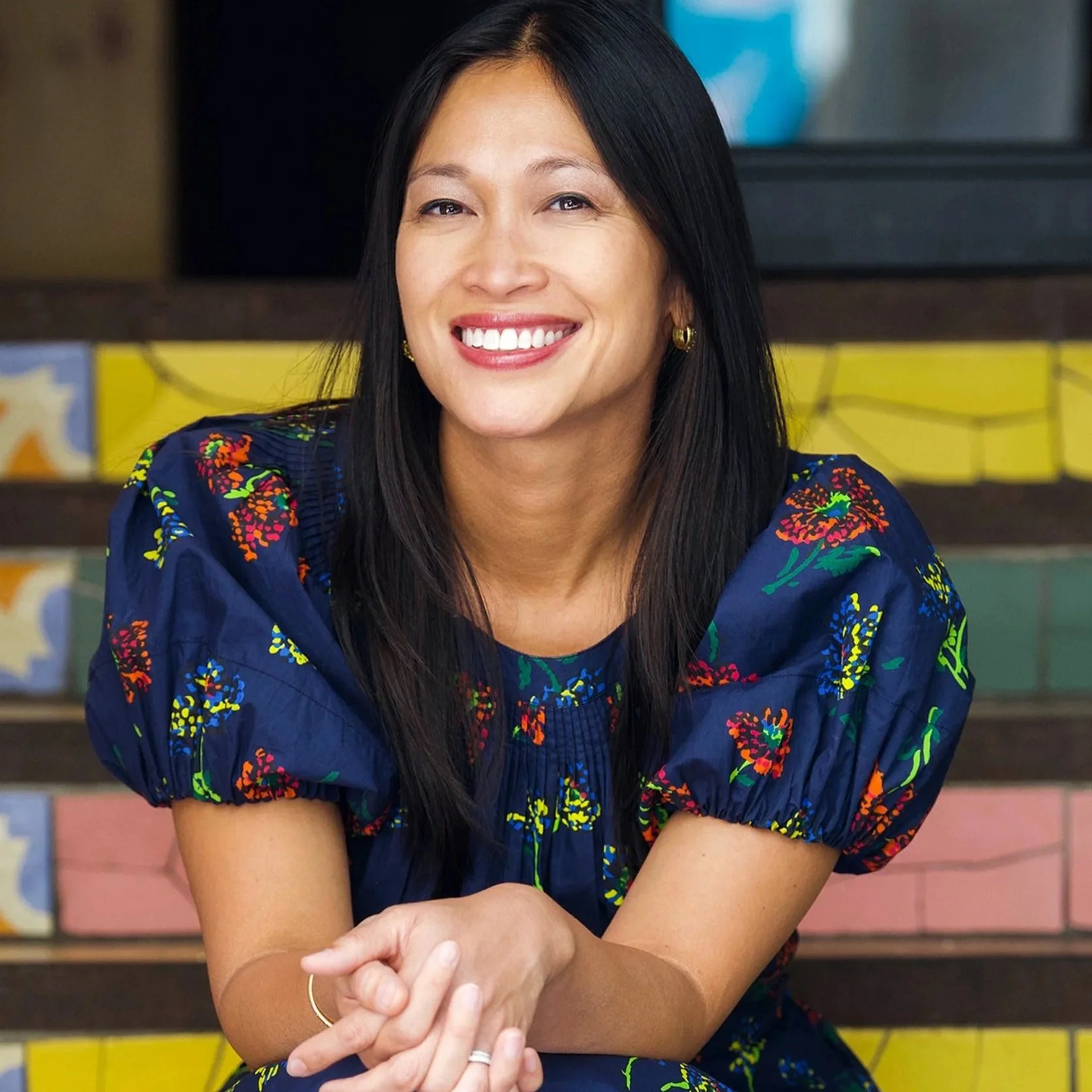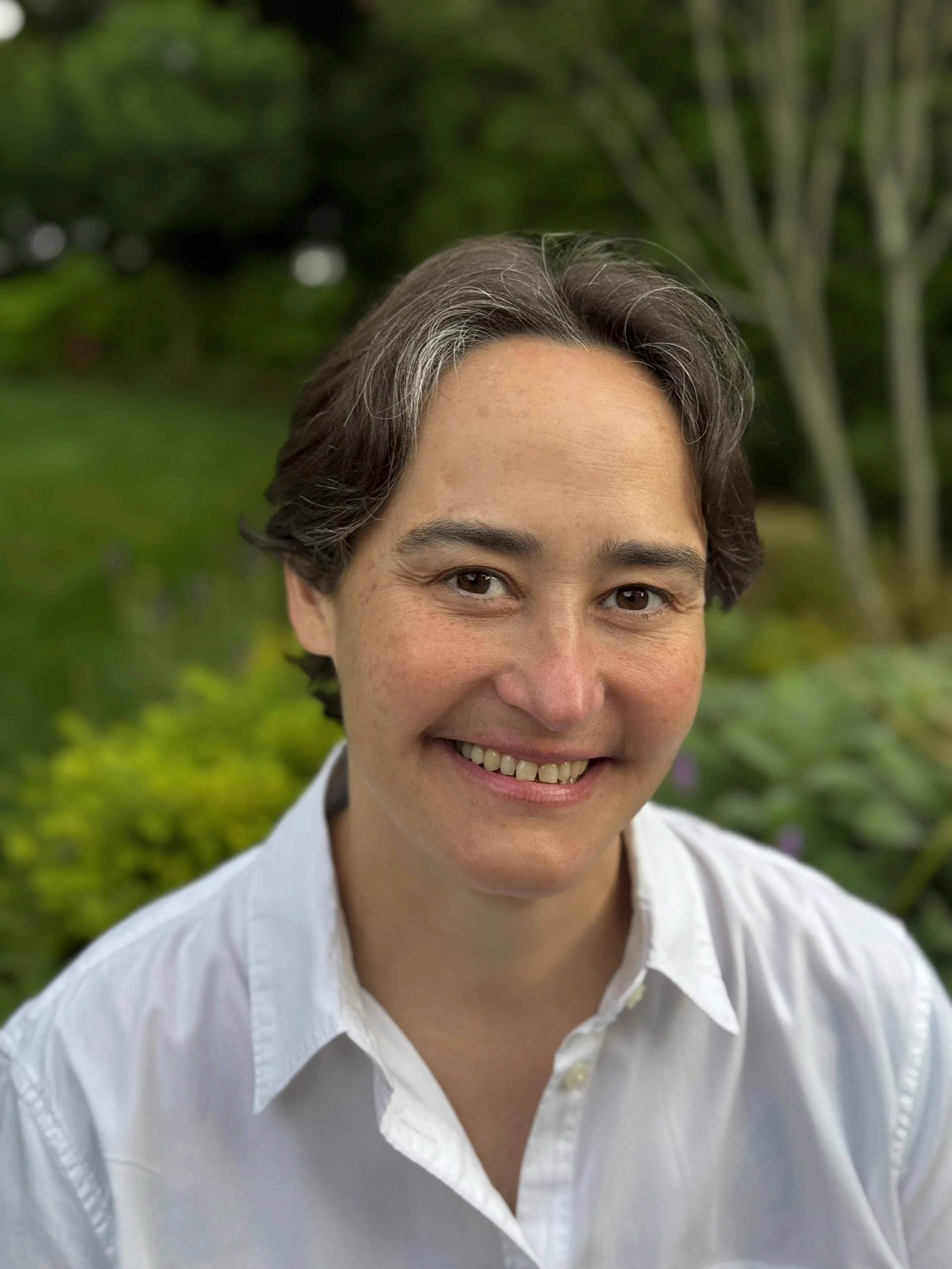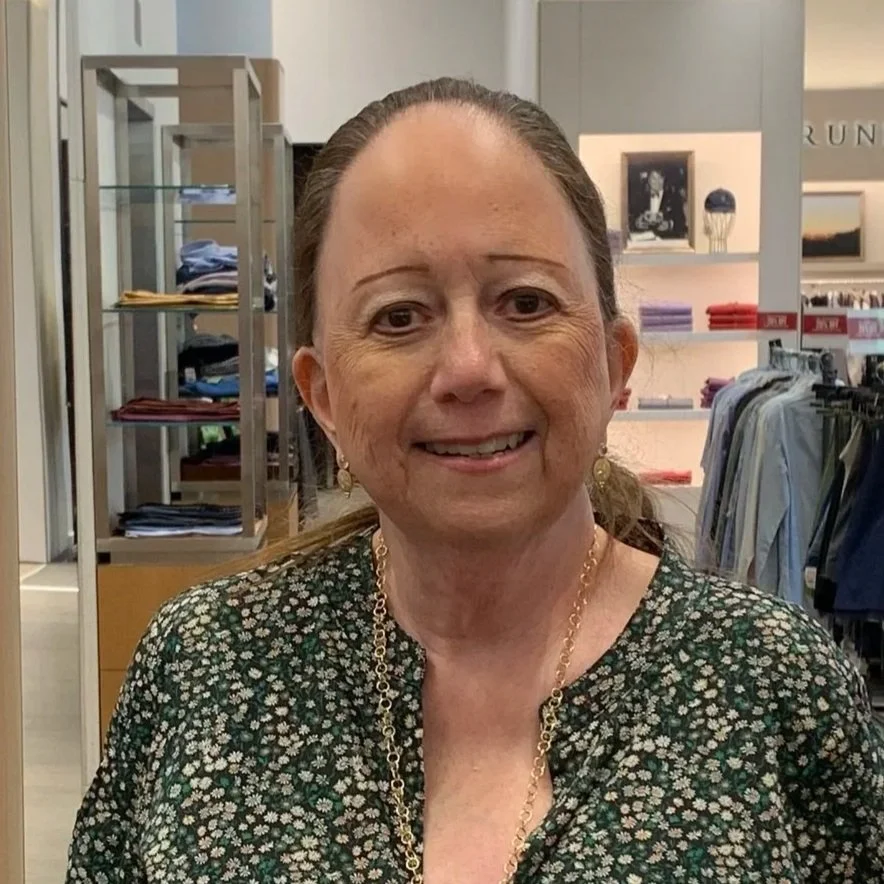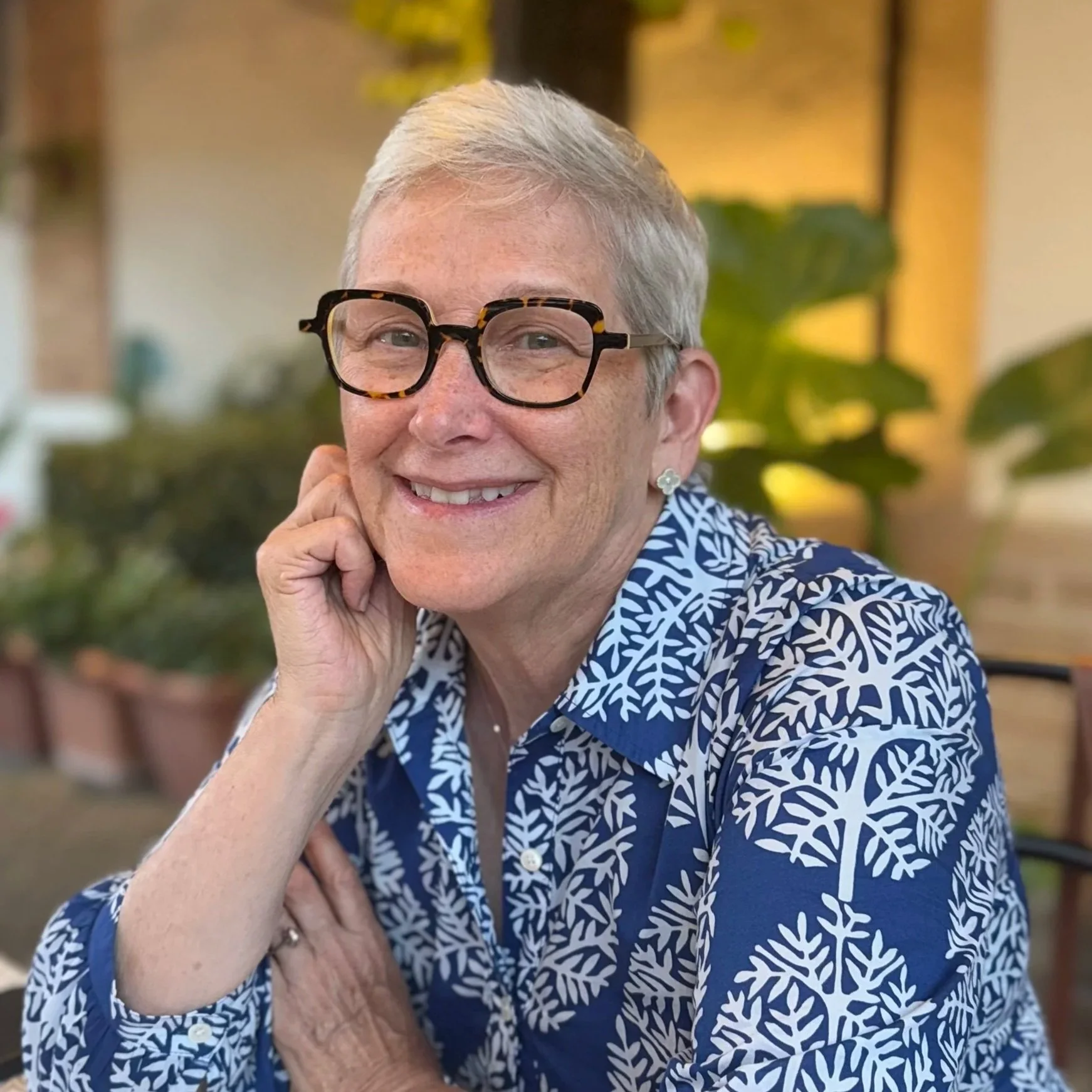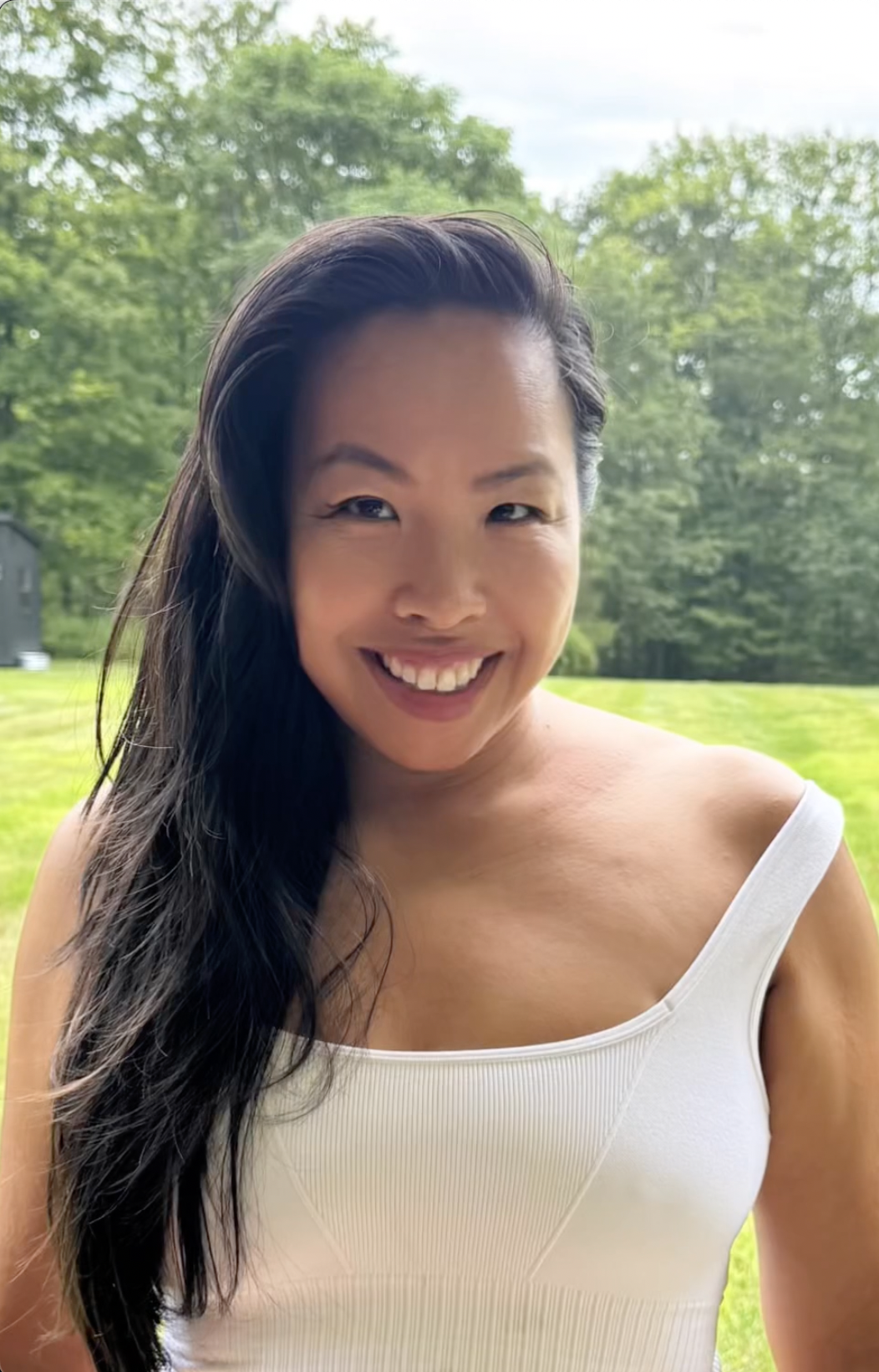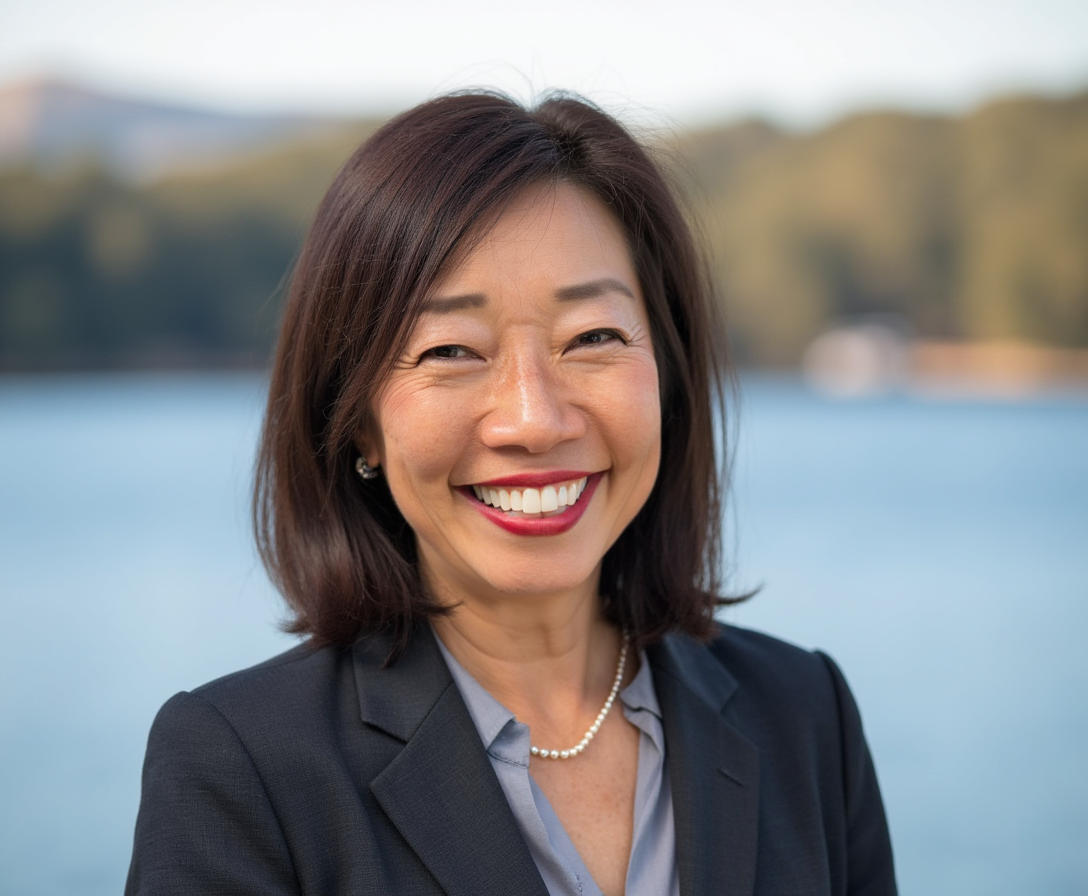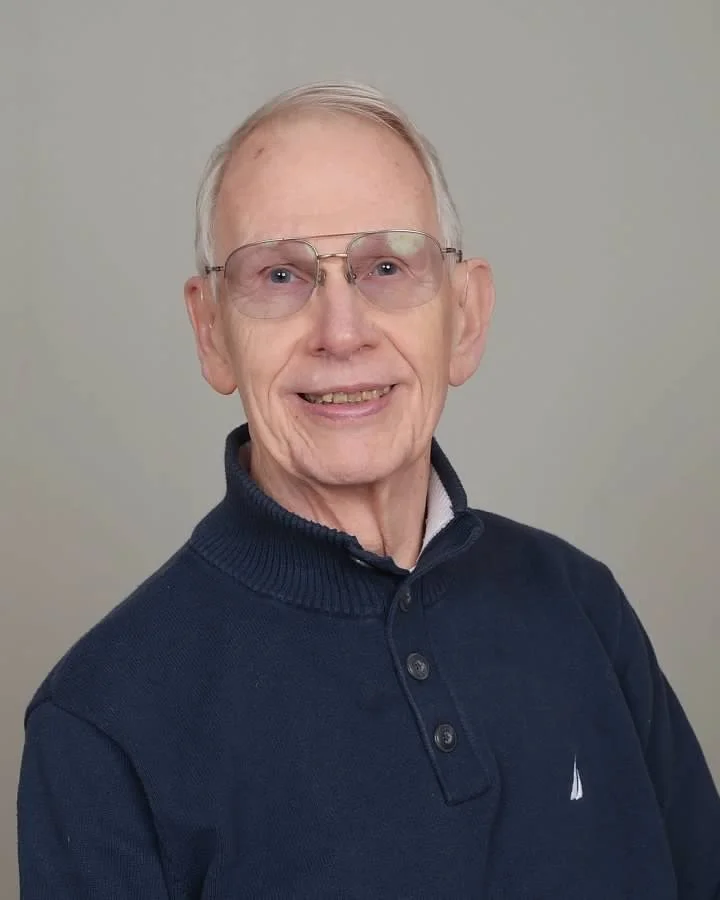BCA Models of Inspiration
BCA’s Annual Luncheon and Fashion Show held each October, and attended by nearly 850 supporters, honors remarkable individuals who embody strength, resilience, and hope in the face of breast cancer. These courageous men and women are celebrated as our Models of Inspiration, taking to the runway to share their stories and shine a light on the powerful journey of survivorship.
This year, BCA’s 29th Annual Luncheon and Fashion Show will be held on Thursday, October 23, 2025 at the Hyatt Regency Hotel, Old Greenwich.
Pay tribute to your personal model of inspiration by making a donation below.
Catherine Davis
HR+, Invasive Ductal Carcinoma (IDC)
What was an unexpected source of strength for you?
Shortly after my initial diagnosis, a good friend put me in touch with her friend, also a breast cancer survivor, as someone to speak with since I was not ready to share the news with my own friends just yet. Through several text messages and a heartfelt phone conversation, I laughed, cried and confided in her. It was amazing to me how a complete stranger became my trusted resource, strength and inspiration. It was in that moment that I realized that I am not alone. We, as women and now breast cancer survivors, share a sisterhood that is empowering and helps us to empathize with each other no matter the diagnosis or outcome.
Selenia Hicks
Medullary Breast Cancer
What was your experience being diagnosed?
At 32 years old, I was a happy wife and mother to two boys, ages 7 and 2, simply living my life and seeing myself primarily as a mom and wife when I discovered a lump during self-examination. I approached my medullary breast cancer diagnosis with an unexpectedly optimistic attitude, actually viewing it as an adventure—a perspective I maintained even after the surgeon delivered the news to my husband and me, though my mother cried and began praying when I told her. Due to my age, I underwent aggressive chemotherapy and radiation, with my family and close friends serving as my crucial support system throughout treatment. The most challenging aspects were losing all my facial hair and enduring the chemotherapy side effects, but the experience taught me an important boundary lesson: it's okay to say no to things I don't really want to do, rather than automatically saying yes. My approach was to deal with the cancer without letting it take over my life, and now I feel deeply thankful to God for blessing me with such wonderful family and friends—life is good, and I've moved forward from that experience.
Amanda Katz
Invasive ductal carcinoma
Who did you tell first when you were diagnosed? What was that conversation like?
My wife. I texted her because I was on the train heading home from work. I hate having phone conversations on the train. It was somehow easier than saying it out loud. My second text was to my office group chat. We are a very close team. We created a group chat during Covid to keep in touch. We would share everything from inspirational quotes to schedule updates but on 9/12/24 I needed the virtual hug. My Boss, Dr. Broumand was in Italy for a wedding at the time. He immediately called me and asked what I wanted to do. I said I want to see Dr. Port. I was in her office the next morning. I felt so safe and confident that I had my team. I had the best in the world in my corner and ready for action. I will be forever grateful.
Jenny Klein
DCIS
What was an unexpected source of strength for you?
I had the good fortune of having Dr. Elisa Port as my doctor, who quickly took me under her wing and explained my options – mastectomy or radiation. She was so kind, understanding and no question was ever stupid with her. Nineteen years ago, a bilateral mastectomy was not as common as it is today, especially when surgery on my right breast would be prophylactic. My brother-in-law, who was battling stage 4 neuroendocrine cancer gave me great advice and said, “Jenny if I found my cancer at your stage I would be as aggressive as possible.” At the time, I looked at my three boys who were almost 3, almost 2 and just a few months old and I knew I had to take as much uncertainty out of the equation as possible and so I chose to do a bilateral mastectomy with reconstruction. Once I made that decision, I never looked back even if others had differing opinions. My husband, John, never missed an appointment with me despite his crazy travel/work schedule. I think of those days of him sitting next to me in the waiting room of MSK for hours, holding my hand and later, changing my bandages when I could not even look at myself. I think of my sister, Lauren, who, was taking care of her husband, who had neuroendocrine cancer and somehow, she was able to simultaneously care for both of us, giving us strength and always making us laugh. My family, my business partners and my friends surrounded me with unwavering support. And, women I had never met before came out of the woodwork sharing their journeys and offering so much of their time to help guide me. I will forever be grateful.
Catherine Kozak
Stage 1 Breast Cancer
Who did you tell first when you were diagnosed? What was that conversation like?
On September 17th, 2017, I received devastating news that I shared with my husband Jeff and my daughter - my mammogram came back positive for stage one breast cancer. About a month later, I underwent a lumpectomy on my left breast followed by radiation treatment. The experience was particularly frightening given that I had already lost one sister to breast cancer and another to alcoholism, which made me acutely aware of how precious life is. The conversations with my family weren't easy, but I had tremendous support from my husband Jeff, who is the store manager at Richard's in Greenwich where I've worked on the support staff since 1999 - we've been married for 39 years. Both of my daughters, Emily and Sarah, were there for me throughout the ordeal, along with my four wonderful grandchildren. While the treatment was physically exhausting and drained my strength, I pushed through each day. Seeing my daughter Emily get married in 2019, along with precious family time and vacations, helped carry me through the most difficult periods. Though I don't work quite as much now, I'm grateful to still be here and make the most of every day. My experience has taught me the importance of annual mammograms and living life to the fullest, appreciating everything I have and feeling fortunate for each day I'm given.
Gail Mathias
ER+/ triple negative
Were there any surprising, empowering, or positive outcomes of your journey?
I have found out that I am much stronger than I ever knew and I try to find that balance of being realistic and optimistic. Most importantly I try to be present and not allow myself to get overwhelmed with the "what if's" because some things are just not in our control. When going thru treatment, you feel as though your life is partially on hold yet at the same time you try and carry on as though life is normal. You go about your routines and then suddenly you stop and say "Oh, that's right I have cancer". this becomes the new normal. then each time you have an appt. with your oncologist, or you are waiting for the results of a scan you are reminded once again that you've had cancer and then life goes on. It's just sort of always there yet you try and shelf it for a while, but it will never go away, I guess that's just life.
Alison McFerran
Ductal Carcinoma (right) and Lobular Carcinoma (left)
Who did you tell first when you were diagnosed? What was that conversation like?
Last year, I was training for the New York City Marathon and fundraising for Susan G. Komen's team to support breast cancer awareness.
Ironically, in September 2024, I was diagnosed with breast cancer myself after undergoing a series of mammograms, ultrasounds, and biopsies.
As a single, working mom of three teenagers, I made the decision to get a double mastectomy as soon as possible and postponed the marathon, in order to take early action to reduce the risk of the cancer spreading further and to potentially avoid the need for radiation/ chemotherapy/ pills being diagnosed. I consider myself incredibly fortunate and remain deeply grateful that my cancer was caught and addressed early and didn't spread to my lymph nodes.
However, during my double mastectomy, a tumor was also discovered in the opposite breast-one that hadn't shown up in prior screenings. It was not optional to have a mastectomy to remove one tumor but it was unknown and a surprise to surgeons that they found a tumor in the opposite breast not detected on any mammogram or ultrasour
This experience has only strengthened my passion and commitment to the cause. I'm more determined than ever to raise awareness for early detection, better prevention, and ultimately, a cure. My mission is to help shape the future of survivorship-ensuring women not only survive breast cancer but also thrive in life beyond it. I am blessed to say l am now cancer-free and a proud survivor wanting to support women and families on this journey.
Diana Mui
DCIS
What was life like before your diagnosis -- personally or professionally?
Before cancer, I was unstoppable. Driven. Leaping before I looked—because I could. I believed time was mine to shape. That if I worked hard enough, I could control it. That I’d always have more of it. I didn’t linger in little moments—I assumed there would be plenty. I was building a life for myself and the people I loved, always chasing what was next. Always saying yes. As an interior designer, I loved what I did. But even then, I felt the quiet itch that there was something more I was meant to do. I just didn’t know what it was. I thought I had rights to my own time. To my body. To my voice. Cancer came and showed me—I didn’t. It shattered the illusion of control. The clarity I used to have? It blurred. The drive? Still there, but now laced with doubt, fear, and a different kind of fire. Before cancer, I was bold, fast, determined. After, I’m still those things—but now I know the weight of a single moment. Now I feel time, rather than race it. And that changed everything.
Sarah Ostrower
Her2 Positive
How did you emotionally and mentally process your diagnosis?
Emotionally and mentally, it was overwhelming. I remember thinking over and over, “How can this be happening to me?”—as if repeating it might somehow make it untrue. I would often wake up in the morning hoping it had all just been a bad dream, only to feel the weight of the truth settling in all over again. At the same time, my mind was consumed with thoughts of my children and my husband. I spent nearly every waking moment imagining the things I’d want my kids to know, feel, or do if I wasn’t there to watch them grow up—and the kind of life I hoped my husband would still get to have, even in the face of loss. The fear was paralyzing at times, but so was the love. It became a mental tug-of-war between disbelief and a desperate need to protect, preserve, and somehow prepare my family for a future I couldn’t yet imagine.
Nozomi Levine
DCIS
What was your first day of treatment like?
My first day of treatment was September 11, 2001. I woke with dread but was struck by the brilliant, cloudless morning as I walked to NYU Langone. The radiation setup was straightforward, treatment surprisingly easy. I walked out onto First Avenue around 9:30 a.m. with relief.
The contrast was jarring. The bustling avenue was now a ghost town—no cars, no people, just sirens and acrid smoke. A trembling taxi driver told me a plane had hit the World Trade Center. The horrifying truth unfolded as I watched the news at home.
The next day I had to return for treatment. The city was paralyzed—no subways, buses, or taxis. NYU had become a trauma center and morgue. I walked from the Upper West Side to the East Side like a zombie, my personal anxieties swallowed by collective grief. The streets were filled with shell-shocked people holding pictures of missing loved ones.
When I reached the radiation department, it was quiet and uncertain. Then the therapists arrived—they had walked from Brooklyn and Queens, determined to provide care amid chaos. For the rest of that surreal month, I walked to and from treatment, as did they.
Ronald Smith
Cribriform Ductal Carcinoma In Situ
Who did you tell first when you were diagnosed? What was that conversation like?
You might say my life was saved over thirty five years ago. I was in my early forties and had an appointment with my new primary care doctor. During the exam, this young physician casually mentioned that men, although it was rare, could also get Breast Cancer. For some reason his words always stayed with me. Thirty three years later I noticed a thickening in my left breast. I mentioned it to my doctor (the same physician who had advised me that men could also get Breast Cancer) He immediately made an appointment for a mammogram. It was with great relief that we were told the results were negative. However, a month or so later while on vacation, I began to see spots of blood on the left side of my t-shirt. I didn’t want to alarm my wife, so I waited until we were home to mention it. Again we went back to my primary care doctor who arranged for another mammogram. This time, the results were not as welcome. They found early stage Cancer cells.
Doctor of Inspiration
Dr. Steve Lo
My BCA journey began 30 years ago when I saw Mary Waterman monopolizing the large table in the center of the group room at the BCC while she was receiving her IV chemotherapy for her metastatic breast cancer. I had the privilege of being her medical oncologist. When I asked her why she had stacks of paper scattered all over the table, she said she was trying to start a local organization dedicated to raising money for breast cancer research. She was on a mission and didn't want any medicine that can slow her down. I was at the first official BCA meeting at Mary's house with Mary and her five amazing friends who helped her start the BCA. Unbeknownst to anyone, Mary was wearing a very small 24-hour chemo pump under her jacket during the meeting, and she didn't skip a beat. I think we raised around $100,000 that first year.
With the decline in funding of cancer research, organizations such as the BCA are much more relevant now than ever. When I'm asked what is my vision of the BCA, I see an organization that will continue to expand its funding capacity by growing its regional base of supporters which is the strength of the organization. Most importantly, it will continue not to duplicate efforts of other organizations and to continue to seek its own path to meet the needs not filled by others. It needs to continue to constantly re-examine itself to determine what is the most effective way to fulfill its mission which is to improve the survival and quality of life of individuals with breast cancer.

